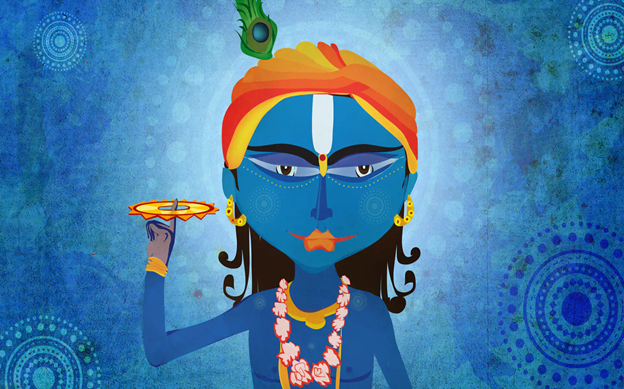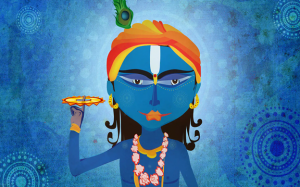Pre-requisites for Dharma

Dr. Gauri Shankar Gupta
Righteous and just decisions are possible only with a healthy body, right thinking and sharp intellect. Therefore, a healthy body and the purity of thought process are considered a very significant and intrinsic part of the concept of dharma. A sick, drunken or intoxicated person is not in a position to take right decisions. Similarly, a person with clouded thinking will find it difficult to follow the path of dharma. For this reason, ancient Indian wisdom lays considerable emphasis on healthy body, purity of mind and uncluttered intellect. Health conditions of the physical and the non-physical (subtle) parts of the body (mind, intellect) are considered equally important. As explained elsewhere, there is constant interaction between body, mind and intellect. They function as an integrated whole. Every single thought that passes through our mind has an impact on the functioning of the body and senses. For example, if someone insults you, the mind sends signals to the body and the body reacts accordingly. On the contrary if you are praised, signals emanating from the mind will be different and so will be the reaction of your body. Similarly, every action of ours has an impact on our mind through the nervous system. When somebody helps a needy person, his mind receives positive signals making him feel happy. The constant interaction between body and mind is a scientifically proven fact. Thus, a sick body could weaken one’s will and affect the subtle parts of the body and similarly a sick mind could affect physical health. That is why in ancient Indian writings considerable emphasis has been given on healthy body and healthy mind. Healthy routine, healthy food, good surroundings, physical exercises and healthy thoughts are essential elements of good health. Pranayama, the breathing exercises and the yogic practices are also considered essential to regulate the flow of cosmic energy in the body to stabilize the mind which by nature is volatile and unstable. The stability of mind and intellect are considered imperative for taking right decisions.
Five human traits – sexual desire, anger, arrogance, greed and attachment – are considered strong enemies of right conduct. These traits are natural and they exist in all individuals in varying degrees. Unfortunately, they have the capacity to drive us away from the path of right thinking by affecting and paralyzing the capacity of mind and intellect. A person who is obsessed with sexual desire is likely to take decisions that fulfill this desire rather than those that are correct. His thinking will be influenced by his weakness for sexual desire. Anger upsets the regular flow of breath particularly in the upper part of the body and therefore does not allow a person to properly exercise his faculties of thought and intellect. Thus, in the state of anger his behavior becomes completely impulsive. Obviously in such a state he is not expected to take right decisions. Ego and arrogance are regularly affecting our capacity to make correct judgment. Positions of power, wealth and the perceived notion of higher intellect drive our ego to a higher level, adversely affecting our capacity for taking correct judgment. The practices of slavery and apartheid existed precisely because of this reason. The ego of man has been the principal cause of discrimination against women. Many times, we fail to take an initiative to reconcile our differences with others or to take care of the needy precisely because of ego or arrogance. When someone hurts our ego, we do not hesitate to harm him out of vengeance. The ego takes the good out of us and therefore we start vacillating from the path of dharma.
Similarly, greed drives us away from the just to the unjust path. An individual driven by the greed for money will end up indulging in economic and financial frauds or stealing from others. Greed for food and wines could lead a person to cause irreparable damage to his health and consequently to his thinking process. Greed for power could drive a person to take an unjust path ignoring the good of masses. History is full of tyrants and dictators who were driven by sheer greed for power. In their thirst for power they end up doing considerable damage to society and its moral fabric. Attachment is yet another enemy of dharma. There are plenty of examples when attachment to the near and dear has forced people to deviate from the righteous path. Even judges have vacillated due to attachment to their near and dear. These weaknesses keep clouding our mind and thinking in varying degrees. Therefore, the concept of dharma prescribes for us to rise above these weaknesses in order to enable us to make objective and righteous decisions. The judicious use of intellect, the stabilization of mind through pranayama and meditation and control over senses could help us to overcome these enemies of dharma. If we could overcome these human weaknesses by regulating our mind, our thinking would be crystal clear for taking the objective and just decisions. These weaknesses do not allow us to make a correct judgment in the same way as the dust on a mirror does not allow one to see one’s own image clearly. Once the dust is removed one could see one’s own image clearly in the mirror. This will enable us to see the unity between the self and the rest of the creation. Once we are able to see this unity we will not deviate from the path of dharma. Lord Krishna has clarified this aspect in Bhagvad Gita as follows:
Bhagvad Gita
धूमेनाव्रियते वह्निर्यथादर्शो मलेन च ।
यथोल्बेनावृतो गर्भस्तथा तेनेदमावृतम्॥३.३८॥
As the fire is covered by smoke, as the mirror is covered by dust, or as the embryo is covered by womb, similarly, the living entity is covered by different degrees of lust.
(3/38)
इन्द्रियाणि मनो बुद्धिरस्याधिष्ठानमुच्यते ।
एतैर्विमोहयत्येष ज्ञानमावृत्य देहिनम्॥३.४०॥
The senses, the mind and intelligence are the sitting places of lust. Through them the lust covers the real knowledge of the living entity and bewilders him.
(3/40)
तस्मात्त्वमिन्द्रियाण्यादौ नियम्य भरतर्षभ ।
पाप्मानं प्रजहिह्येनं ज्ञानविज्ञाननाशनम्॥३.४१॥
Therefore, O Arjuna, curb this great symbol of lust in the very beginning by regulating the senses and slay this destroyer of knowledge and self-realization.
(3/41)
इन्द्रियस्येन्द्रियस्यार्थे रागद्वेषौ व्यवस्थितौ ।
तयोर्न वशमागच्छेत्तौ ह्यस्य परिपन्थिनौ ॥३.३४॥
There are principles to regulate attachment and hatred pertaining to the sense objects. One should not come under their control because they are stumbling blocks to the path of self-realization.
(3/34)
Therefore, in order to follow the path of dharma we need to understand our true self. Knowledge of the self alone could liberate us from enticement, attachment and sense gratification which are the principal obstacles in the path of dharma. The purity of thought, intentions and actions are the guiding principles in the arduous journey of dharma. Based on these guiding principles, one must apply his/her best judgment in a given situation to find the just and right path to tread. This is what the Hindu concept of dharma teaches us.
(Writer is Former Ambassador/High Commissioner of India)

